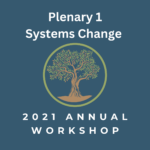By Kate Radford [email protected]
Thanks to the development of an implementation protocol based on real time learning, Can’t Wait to Learn – a curriculum-based, educative gaming technology model designed specifically for and by children affected by conflict – has started up in record time in Uganda.
Using processes and tools adapted from rigorous documentation and testing in Jordan, Lebanon, and Sudan, the Uganda roll-out has taken just nine months from the time of country entry to the moment when the first children started playing the Uganda Maths game in May 2018. This timeframe includes the partner induction process, needs assessment and co-creation process, game build, teacher and IT training workshops, game installation, roll-out preparation activities (community sensitization, storage facility installation and solar panel installation), and roll out.
Can’t Wait to Learn proposes new solutions to the urgent challenges facing education for children in emergencies. Engaging locally based education stake- holders, such as Ministries of Education and community-based organisations, as well as international expertise in software development, game development and design has resulted in a self-guided serious gaming format accessed on tablets that takes children through Ministry of Education approved curriculum, providing opportunity for them to work toward primary level certification or school re-integration.
Designed for children, by children: Can’t Wait to Learn directly engages children in the development of the programme and game design through an intensive co-creation process – a central tenet to the programme’s key principle of contextualisation. Co-creation occurs on multiple levels and culminates in the development of the locally contextualised content of the game, including the game design, storyline and curriculum. This lowers the threshold for children to engage, particularly if new to technology. Instead of learning to recognize new characters, events and circumstances, children become immersed in a world that reflects their own and focus on math and/or reading.
Rigorous research and learning: During Can’t Wait to Learn’s global start up period, the programme has placed a strong focus on generating an evidence base, with research studies currently on-going in Jordan, Lebanon and Sudan. These were initiated after initial proof of concept and scaled trial studies for Maths in Sudan in 2014 -2015 indicated promise for learning impact. Currently, a practice based evaluative study has just been completed in Lebanon on the Maths game (Arabic language), a pre-post study is on-going in Sudan on the Reading game (Arabic language), and two small proof of concept studies have been completed in Jordan in preparation for a larger study including both reading and maths scheduled for September – December 2018. Results of these studies will be used to inform both iterative improvements to the game con- tent and delivery model for scale up across programme countries, and the body of knowledge on learning in the education in emergencies sector more globally.
Scale up ambitions: As research studies come to a close, scale up will also begin in Sudan, Lebanon and Jordan, each targeting differing populations from out of school children through to those in overstretched formal, non-formal and alternative education pro- grammes. This diversity of experience is collectively contributing to a standardised implementation protocol – as tested in Uganda – that will be the basis from which the programme can successfully roll out to diverse education in emergencies contexts, including the most poorly resourced. Can’t Wait to Learn funded supported by Dutch National Postcode Lottery, IEKA Foundation, Google.org, USAID, Humanitarian Education Accelerator, UNICEF and CISCO Foundation.
Back in Uganda, where Can’t Wait to Learn is being implemented as part of the Ministry of Education endorsed Accelerated Education Programme for South Sudanese refugee and vulnerable Ugandan host community children, the first groups of children are playing and giving valuable feedback which will be used to inform large scale roll out set to begin in 2019.


